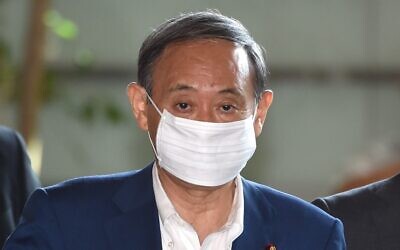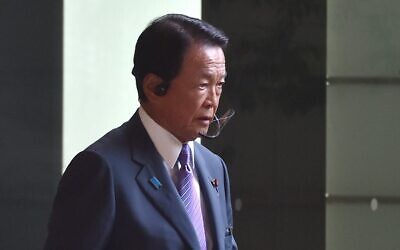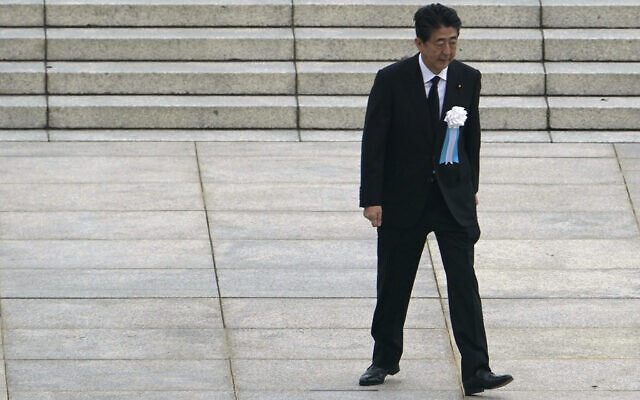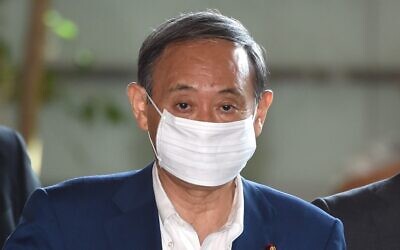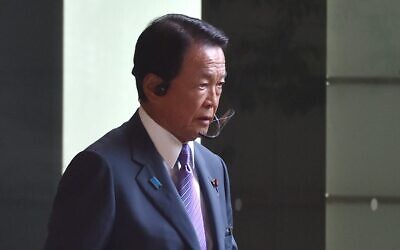TOKYO (AFP) — Japan’s Prime Minister Shinzo Abe is to resign over health problems, local media reported Friday, in a bombshell development that will end a record-setting tenure with no clear successor yet in place.
There was no immediate confirmation of the reports, which came hours before Abe was due to give a press conference to address speculation about his health.
The unexpected news sent Tokyo stocks plunging more than two percent, with the benchmark Nikkei 225 index reversing earlier gains.
Rumors about Abe’s possible resignation had intensified after two recent surprise hospital visits for unspecified medical checks, but in recent days, senior government officials had suggested he would serve out the remainder of the year in office.
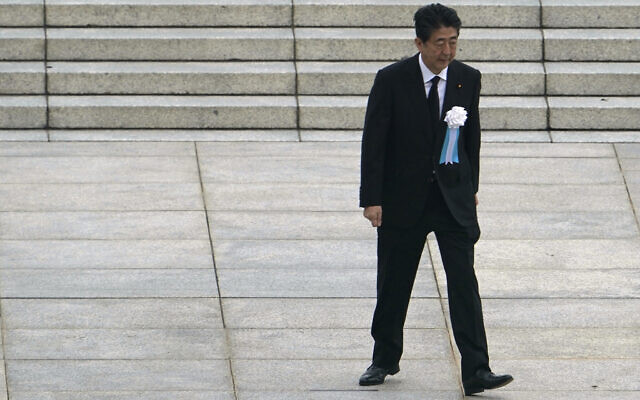
FILE – In this Aug. 6, 2020, file photo, Japanese Prime Minister Shinzo Abe walks off after delivering a speech during a ceremony to mark the 75th anniversary of the bombing at the Hiroshima Peace Memorial Park, in Hiroshima, western Japan (AP Photo/Eugene Hoshiko, File)
The resignation would be a bitterly familiar scenario for Abe, who stepped down just one year into his first term, in 2007, over health problems.
He was subsequently diagnosed with ulcerative colitis, which he said upon return to office in 2012 was under control with the help of new medication.
The resignation, if confirmed, will come despite the insistence of government spokesman Yoshihide Suga on Friday morning that Abe remained in good health.
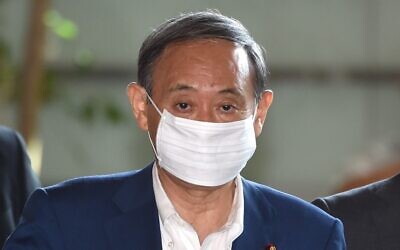
Japan’s Chief Cabinet Secretary Yoshihide Suga arrives at the prime minister’s office in Tokyo on August 28, 2020 (Kazuhiro NOGI / AFP)
“I see him every day and feel that there is no change in his condition,” Suga told reporters at a regular press conference.
And on Thursday, Suga told Bloomberg News that Abe would “of course” be able to serve out the rest of his term, which ends September 2021.
“He’ll be all right,” he said.
But the health woes appear to have piled on the pressure for Abe, who this week broke the record for the longest uninterrupted stint in office in Japanese history.
Despite the relatively contained impact of the coronavirus in Japan, Abe’s government has been heavily criticized for its approach to the crisis, including a U-turn on stimulus payments and a much-mocked decision to issue each household two cloth face masks.
The prime minister has also seen his signature “Abenomics” economic policy come under increasing strain, with the country already slumping into recession even before the coronavirus crisis hit.
Still, experts had said there was little appetite within the ruling Liberal Democratic Party for Abe to depart early, especially as there is no consensus yet on his successor.
And with Japan’s fragmented opposition so far unable to capitalize on the government’s falling approval ratings, there had appeared to be little immediate pressure on him to step down.
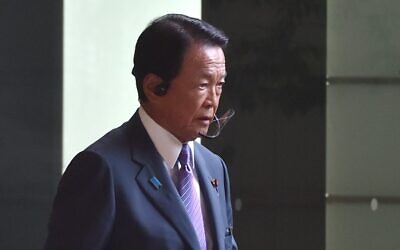
Japan’s Deputy Prime Minister and Finance Minister Taro Aso arrives at the prime minister’s office in Tokyo on August 28, 2020 (Kazuhiro NOGI / AFP)
An abrupt resignation throws open various possibilities, including that either deputy prime minister Taro Aso — who also serves as finance minister — or chief cabinet secretary Yoshihide Suga would assume the office in a caretaker capacity.
A later election within the party would then confirm a full-time successor.
Both Aso and Suga, as well as several former and current cabinet members have been suggested as potential successors.
Related posts:
Views: 0
 RSS Feed
RSS Feed

















 August 28th, 2020
August 28th, 2020  Awake Goy
Awake Goy  Posted in
Posted in  Tags:
Tags: 